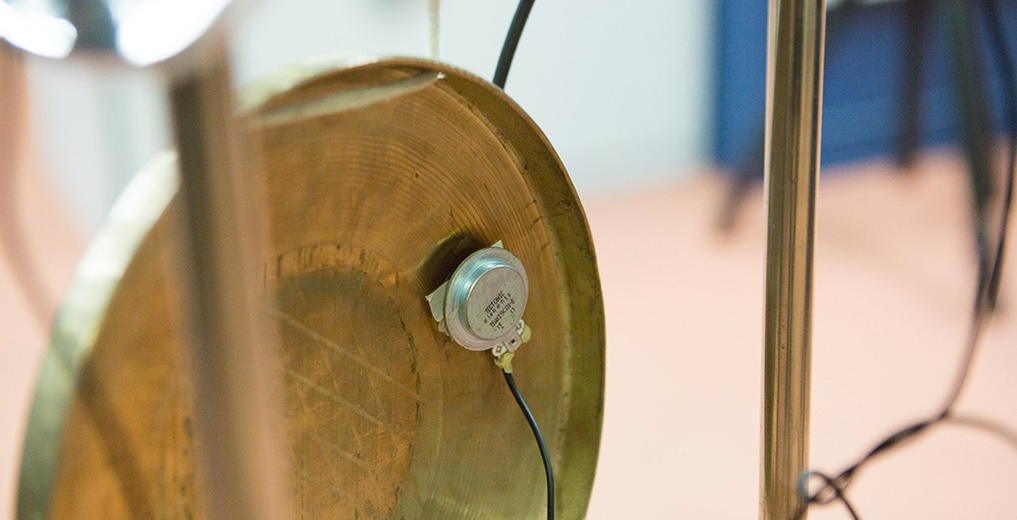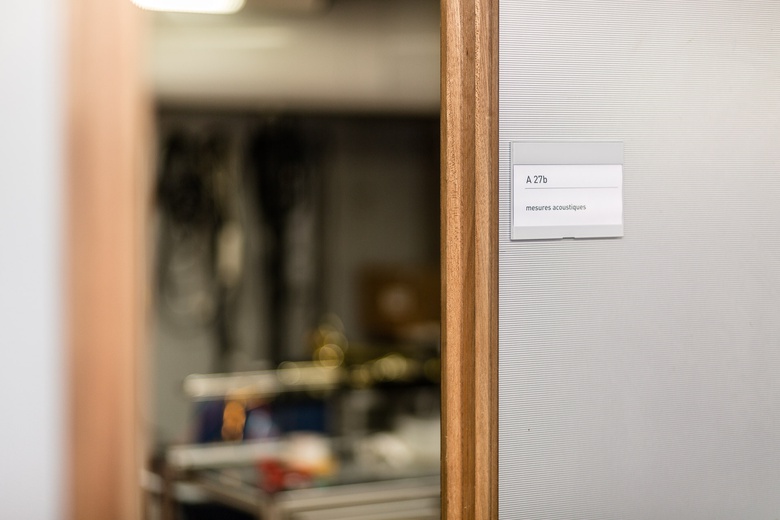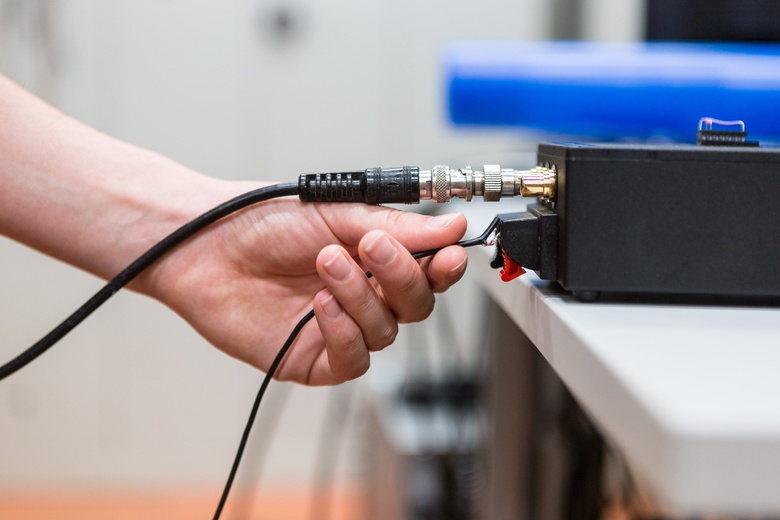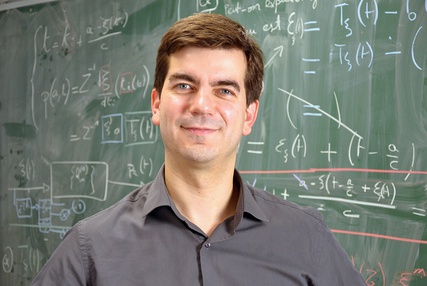Systèmes et signaux sonores : Audio/acoustique, instruments
Elle s’intéresse a explorer, comprendre, reproduire avec réalisme ou inventer des objets sonores en audio, en acoustique, avec une focalisation sur les instruments de musique jusqu’à la production de la voix.
Plus précisément, les objectifs sont de modéliser, simuler, identifier et optimiser ces systèmes (voix, musicien/instrument, haut-parleurs, effets électroniques audio, etc.), avec pour particularité de s’appuyer sur la physique pour faire émerger des structures intrinsèques et en bénéficier. L’équipe élabore des méthodes d’analyse, transformation, contrôle et simulation de sons et des outils d’aide à la conception, dans des paradigmes virtuels, réels ou hybrides.
Dans cette démarche, l’approche globale «systèmes et signaux» apporte une synergie dès la conception des outils, en connectant (et non simplement en juxtaposant) plusieurs disciplines et champs scientifiques : physique, théorie des systèmes et du contrôle, géométrie différentielle, analyse numérique, traitement du signal, informatique, électronique, mécatronique et robotique. Les applications visées concernent les domaines scientifiques, artistiques, pédagogiques et de la santé.
Principales thématiques
- Modélisation physique des instruments de musique et de la voix
- Synthèse sonore par modélisation physique
- Modélisation de systèmes physiques audio et de haut-parleurs
- Plateformes expérimentales robotisées : archet robotisé, bouche artificielle robotisée pour le jeu des cuivres, appareil vocal robotisé à l’échelle 1:1
- Identification de systèmes non linéaires
- Contrôle de systèmes non linéaires et contrôle d'instruments et d'objets du patrimoine
- Instruments augmentés, instruments hybrides
- Lutherie augmentée
Domaines de compétence
Acoustique, mécanique, systèmes non linéaires, automatique et contrôle, théorie du signal, géométrie différentielle, analyse numérique, expérimentation, mécatronique, lutherie réelle et virtuelle, synthèse sonore.
 © Philippe Barbosa
© Philippe Barbosa © Philippe Barbosa
© Philippe Barbosa © Philippe Barbosa
© Philippe Barbosa
Collaborations
Athènes-RIC (Grèce), Cabrilog SAS (France), Cambridge University (Royaume-Unie), C2RMF-Louvre, C2RMF et Louvre-Lens (Paris), Centre Bernoulli-EPFL (Suisse), CHU Liège, EPCC-Edinburgh Univ. (Royaume-Unie), GIPSA-lab (Grenoble), IJLRA-Sorbonne Université (Paris), IMJPRG-Sorbonne Université (Paris), Imperial College London (Royaume-Unie), ISAE-SUPAÉRO (Toulouse), LAGEP-université Lyon-1 (Lyon), LaSiE-université de la La Rochelle (France), LEOPOLY (Hongrie), LMA-CNRS (Marseille), LMD-ENS (Paris), Mines ParisTech (Paris), Musée de la musique - Philharmonie de Paris, NTNU (Trondheim, Norvège), Thalès Group (France).
Domaines de recherche et projets associés
Instruments augmentés
Instruments acoustiques auxquels sont intégrés des capteurs
Lutherie Augmentée
Production de prototypes d’instruments ou parties d’instruments utilisables en concert
Projets nationaux et européens
INTIM
INteractive analysis/synthesis of musical TIMbre
ATRIM
Analyseur temps-réel haute précision de justesse et de timbre pour instruments musicaux
AVATARS
Modélisation Hamiltonienne à ports de la voix humaine pour le contrôle d’AVATARS numériques et mécatroniques
DAFNE+
Decentralized platform for fair creative content distribution empowering creators and communities through new digital distribution models based on digital tokens
INFIDHEM
Systèmes interconnectés de dimension infinie pour les milieux hétérogènes
INTIM
INteractive analysis/synthesis of musical TIMbre
Ondes Martenot
Virtualisation d’instruments de musique électroniques et clonage analogique/numérique de composants pour la conservation
Wasabi
Web Audio Semantic Aggregated in the Browser for Indexation
Logiciels (Conception & développement)

Modalys

The Snail-Absolute Tuning
Équipe
Responsable d'équipe : Thomas Hélie
Chercheur.e.s & ingénieur.e.s : David Roze, Charles Picasso, Henri Boutin
Chargé(e) de développement : Robert Piéchaud
Doctorant.e.s : César DELOMOSNE, Paul Estève, Orlane MAMMAR
Chercheur.se.s associé.e.s : Thomas Risse







